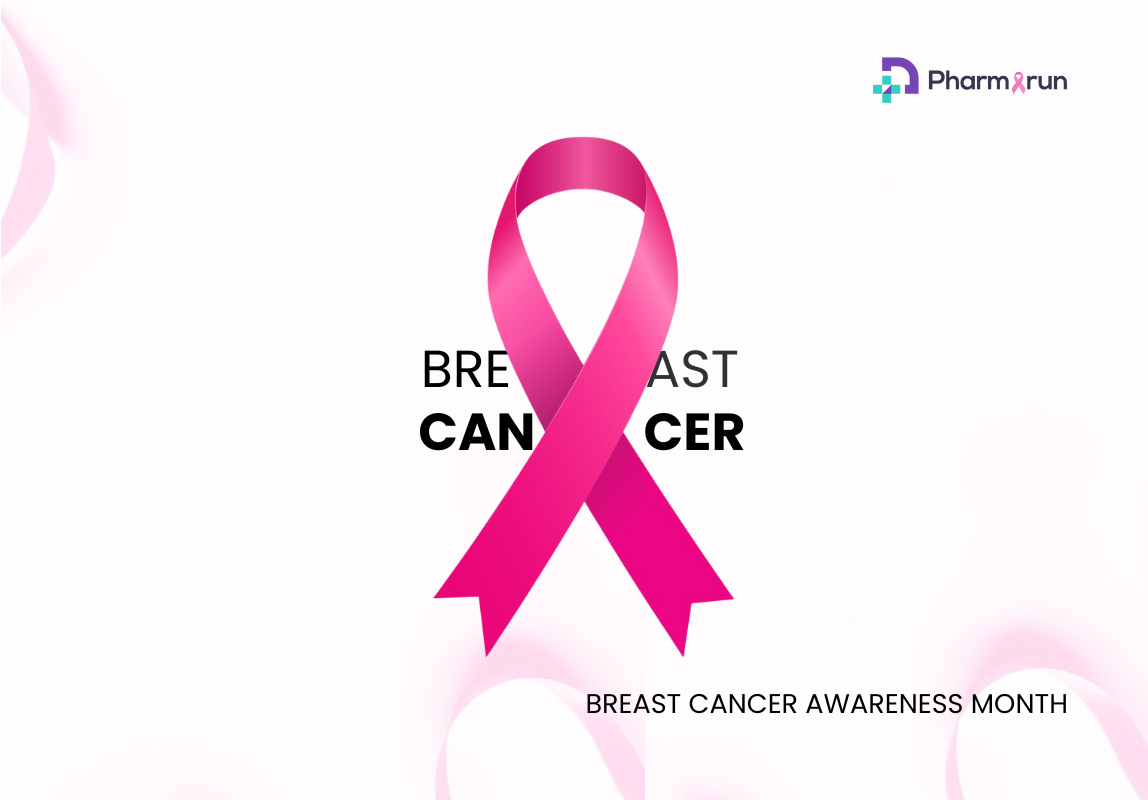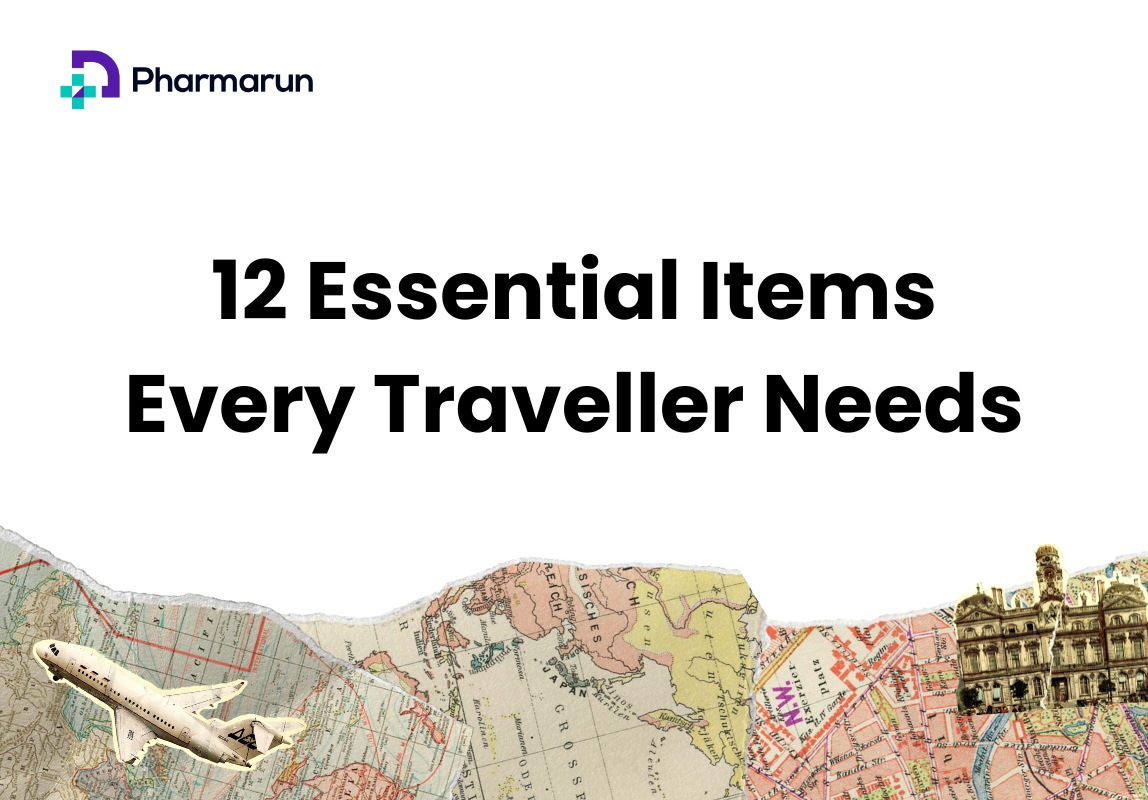Breast Cancer in Nigeria: What Every Woman Should Know in 2025

Half of all breast cancer cases in Nigeria happen in women under 50.
Read that again. Under 50.
If you're in your 20s or 30s thinking "breast cancer is an older woman's disease," you're wrong. And that misconception is costing Nigerian women their lives. October isn't about pink ribbons and performative social media posts; it's about real information that could save your life or the life of someone you love.
Why does this matter?
While women in Europe and America are thinking, "I'll worry about this at 60," Nigerian women are being diagnosed at 50. And their daughters? At 35. At 28. At 23.
The younger you are when diagnosed, the more aggressive the cancer tends to be. And because many young Nigerian women don't know they should be checking, by the time they notice something, it's already advanced.
What You Need to Know About Breast Health
1. Self-Exams Should Start at 20 (Not 40. Not eventually. NOW.)
Not when you turn 40. Not "when you get around to it." At 20 years old, monthly breast self-exams become non-negotiable.
When to do it: 3-5 days after your period ends.
Why? Your breasts are least tender and lumpy during this time, making it easier to feel changes.
Don't menstruate? Pick any day of the month (the 1st is easy to remember) and stick to it like clockwork.
Set a phone reminder right now. Title it "Breast check day" or something you'll recognize. If you don't schedule it, you won't do it. We know how life gets.
- New lumps or thickening
- Changes in breast size or shape
- Dimpling or puckering of the skin
- Nipple discharge (especially bloody discharge)
- Nipple inversion (turning inward)
- Redness or scaling on the breast or nipple
- Persistent pain in one area
It is important to note that most lumps are NOT cancer but any new lump should be checked by a doctor. Don't wait.
2. Clinical Screening Matters
Self-exams are important, but they're not enough. Clinical screening (by a healthcare professional) catches things you might miss.
- Ages 20-39: Clinical breast exam every 1-3 years
- Ages 40+: Annual mammogram + clinical breast exam
- High-risk individuals (family history): Start screening earlier, talk to your doctor
3. Know Your Risk Factors
You can't control everything, but knowing your risk helps you stay vigilant:
Risk factors you CAN'T control:
- Age (risk increases as you get older)
- Family history of breast cancer
- Genetic mutations (BRCA1, BRCA2)
- Early menstruation (before age 12) or late menopause (after 55)
Risk factors you CAN control:
- Physical inactivity (regular exercise reduces risk by up to 20%)
- Being overweight or obese (especially after menopause)
- Excessive alcohol consumption
- Long-term hormone replacement therapy
The good news? The controllable factors matter. Exercise regularly, maintain a healthy weight, and limit your alcohol consumption.
Where to Get Screened in Nigeria
One of the biggest barriers to early detection in Nigeria isn't awareness anymore; it's access. Or rather, knowing WHERE to access screening.
"I don't know which hospital does mammograms."
"Is it expensive?"
"Where do I even start?"
We hear these questions constantly. So here's a guide containing government hospitals with subsidized rates, private facilities for faster service, and NGOs offering free screening events during October.
1. Lagos
Lagos University Teaching Hospital (LUTH)
- Location: Idi-Araba, Lagos
- Services: Clinical breast exams, mammography, ultrasound
- Cost: Subsidised rates for government hospital
Lagos State University Teaching Hospital (LASUTH)
- Location: Ikeja, Lagos
- Services: Part of Lagos State's breast cancer treatment program with mammography machines
- Cost: Government hospital rates
Marcelle Ruth Cancer Centre & Specialist Hospital
- Location: Victoria Island, Lagos
- Services: Clinical breast exams, mammography, ultrasound
- Cost: Private hospital rates
2. Abuja
National Hospital Abuja
- Services: Clinical exams, mammography, ultrasound
- Cost: Government hospital rates
3. Other Major Cities
University College Hospital (UCH), Ibadan
- Location: Ibadan, Oyo state
- Offers screening services and participates in free breast cancer awareness campaigns
- Government hospital rates
University of Port Harcourt Teaching Hospital
- Location: Port Harcourt
- Services: Clinical screening and diagnostic services
Aminu Kano Teaching Hospital
- Location: Kano
- Services: Breast cancer screening program
Cost Expectations
- Clinical breast exam: ₦5,000 - ₦15,000
- Mammogram: ₦15,000 - ₦50,000 (depending on facility)
- Breast ultrasound: ₦10,000 - ₦30,000
- Biopsy (if needed): ₦30,000 - ₦100,000+
Pro tip: Many NGOs offer free screening events during October. Check with:
- Breast Cancer Association of Nigeria (BRECAN)
- MedicAid Cancer Foundation
- Cancer Aware Nigeria.
Supporting Your Breast Health Daily
Beyond screening, here's how to support your breast health every day:
1. Exercise Regularly
Physical activity reduces breast cancer risk by up to 20%. Aim for:
- 150 minutes of moderate exercise weekly (brisk walking, dancing)
- OR 75 minutes of vigorous exercise (running, HIIT, intense gym sessions)
2. Eat Well
Focus on:
- Plenty of fruits and vegetables (especially dark leafy greens)
- Omega-3 fatty acids (fish, flaxseeds, walnuts)
- Limit processed foods and red meat
- Reduce alcohol consumption
3. Consider Supplements
Certain supplements support overall breast health:
- Women's multivitamins (fill nutritional gaps)
- Vitamin D (linked to lower breast cancer risk)
- Omega-3 supplements (anti-inflammatory properties)
- Calcium (bone health, especially important during treatment)
Shop wellness products on Pharmarun
4. Manage Stress
Chronic stress weakens your immune system. Practice:
- Regular sleep (7-9 hours nightly)
- Meditation or mindfulness
- Time with loved ones
- Activities that bring you joy
If You're in Treatment: We're Here
If you or someone you love is currently undergoing breast cancer treatment, know this: You're not alone, and medication access shouldn't be another battle. Pharmarun sources and delivers chemotherapy support medications, pain management, hormone therapy, and anti-nausea drugs.
For the Men Reading This
Breast cancer kills Nigerian women. This isn't a "women's issue" you can ignore. It affects your mother. Your wife. Your sister. Your daughter. Your friends. When was the last time you asked any of them about their breast health?
Here's how Nigerian men can actually help this Pink October:
1. Have the Awkward Conversation
"Mom, when was your last mammogram?" might feel uncomfortable. Ask anyway. Discomfort doesn't kill. Cancer does.
2. Don't Dismiss Concerns
If she says, "I found something," your response should be "Let's see a doctor immediately", not "It's probably nothing" or "Stop worrying." Dismissing concerns kills women.
3. Offer Real Support
"I'll go with you to your screening appointment" removes a massive barrier. Many women delay because they're scared to go alone.
4. Share This Information
Forward this article to your family WhatsApp group. Yes, it'll be awkward. Do it anyway.
5. Know You're Not Immune
Men can get breast cancer, too. Notice any breast changes? See a doctor.
The uncomfortable truth: Some Nigerian women delay screening because the men in their lives don't take it seriously or actively discourage "wasting money" on health. Don't be that man. Be the man who helps save lives
In Conclusion:
If you take away nothing else from this article, remember this:
1. Early detection saves lives. Knowledge saves lives. Screening saves lives.
2. You have more control than you think. Use it.
3. Do the self-exam. Book the screening. Have the conversation. Share the information.
4. October is pink for a reason. Make it count.
Medical Disclaimer: This article is for educational purposes only and does not constitute medical advice. Always consult with a qualified healthcare professional for medical decisions, diagnosis, and treatment.
Lastest bants
Stories, facts and bants on this journey to ensuring access to medication for Africa
Download Pharmarun today!
Get started with us today by using our delivery service. Also, be one of the first to experience our unique healthcare platform.





